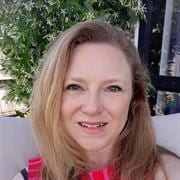Change One Thing Challenge
If so, you are invited to participate in the Change One Thing Challenge, inspired by Dalhousie University. This is a low-risk, high-reward opportunity to showcase your innovation and receive a grant for your professional development.
Join us in shaping the future of education—one change at a time.
View the gallery of grant recipients.
One person. One moment at a time.”
— Libba Bray
Applications for 2026 will open in January
What is it?
The Change One Thing Challenge differs from typical seed grants. Instead of starting with an idea and seeking funding, we celebrate the small-scale changes that educators like you have already implemented and that make a difference. It can be anything that enhances student learning or their experience, and that you have developed or implemented in the last two years. Examples could include:
- Collaborative assignments and projects
- Peer feedback models
- Undergraduate research experiences
- Service, community, work, or place-based learning
- Capstone projects
- Experiential or inquiry-based learning
- Technology-enhanced engagement, feedback, or assessment
What are the benefits?
Selected submissions receive:
- A grant of $1,000 for conferences or professional learning of your choice, e.g., workshops, online courses, conference fees or subscriptions, etc.
- Recognition on TeachWell Digital. Your idea may be captured as a case study in teaching for others to learn from.
2025 grant recipients
Celebrating our 29 Change One Thing Challenge 2025 recipients.

Associate Professor Eileen Lueders
FACULTY OF SCIENCE
A 'Hot Seat' activity enhances communication and confidence in psychology seminars
Eileen’s “Hot Seat” activity in 4th-year psychology seminars enhanced communication skills and confidence by having students answer spontaneous questions, creating a supportive and engaging learning environment.
Profile: Eileen Lueders

Dr Nuddy Pillay
BUSINESS SCHOOL
Utilising FeedbackFruits for team-based learning
Profile: Nuddy Pillay

Dr Alex McAuley
FACULTY OF ARTS AND EDUCATION
Providing students with creative choices in Classics and Ancient History
Profile: Alex McAuley

Blair Sowman
FACULTY OF SCIENCE
Improving lab inductions with AI-generated video
Profile: Blair Sowman

Selena Donaldson
FACULTY OF SCIENCE
Hands-on experience in speech language therapy
Profile: Selena Donaldson

Dr Pippa Bresser
FACULTY OF MEDICAL AND HEALTH SCIENCES
Bringing a 'sales pitch' session to medical imaging
Profile: Pippa Bresser

Dr Judy Thomas
FACULTY OF SCIENCE
Introducing movement-based activities in tutorials
Profile: Judy Thomas

Dr Minh Kieu
FACULTY OF ENGINEERING AND DESIGN
Enriching data analytics skills in Civil Engineering
Minh enriched Civil Engineering courses with individualised datasets and AI tutoring, fostering authentic problem-solving and improving data analytics skills.
Profile: Minh Kieu

Dr Andrew Hall
FACULTY OF ENGINEERING AND DESIGN
Bringing acoustics to life with hands-on experiences
Profile: Andrew Hall

Dr Nicole Perry
FACULTY OF ARTS AND EDUCATION
Encouraging creative assessment in a Folktales course
Profile: Nicole Perry

Dr Courtney Ruha
FACULTY OF SCIENCE
Connecting chemistry with practical applications through Gen-AI
Profile: Courtney Ruha
Xin Cheng
FACULTY OF ENGINEERING AND DESIGN
Promoting hands-on creativity and sustainability in the Design Programme
Profile: Xin Cheng

Amanda Di Ienno
FACULTY OF ENGINEERING AND DESIGN
Improving teamwork in ENGGEN courses
Profile: Amanda Di Ienno

Dr William Lee and Dr Jesin James
FACULTY OF ENGINEERING AND DESIGN
Reflection quizzes promote self-regulated learning
William and Jesin introduced non-invigilated post-test reflection quizzes in ELECTENG 101, promoting self-regulated learning and deeper understanding, and improving student engagement.
Profiles: William Lee, Jesin James

Associate Professor Anne Gaskett
FACULTY OF SCIENCE
Diversity and inclusion in zoology education
Profile: Anne Gaskett

Dr Hazim Namik
FACULTY OF ENGINEERING AND DESIGN
Innovative Inspera quiz tools for fairer assessments
Profile: Hazim Namik

Associate Professor Nawawi Chouw
FACULTY OF ENGINEERING AND DESIGN
Applying real-life situations and analogies to complex concepts
Profile: Nawawi Chouw

Dr Reza Arjmandi
FACULTY OF ENGINEERING AND DESIGN
Computational modelling in chemical engineering
Profile: Reza Arjmandi

Associate Professor Christopher Squire
FACULTY OF SCIENCE
Hands-on poster sessions to engage students
Christopher engaged students in China with interactive poster sessions on drug discovery, fostering active participation and collaboration, and plans to implement this model in first-year biochemistry at UoA.
Profile: Christopher Squire

Dr Udayangi Muthupoltotage
BUSINESS SCHOOL
Enhancing students' technical proficiency and critical thinking with Gen-AI
Profile: Udayangi Muthupoltotage

Dr Chris McMillan
FACULTY OF ARTS AND EDUCATION
Personal learning survey fosters classroom connections
Profile: Chris McMillan

Associate Professor An Hertogen
AUCKLAND LAW SCHOOL
Fostering active learning through written and oral briefings
Profile: An Hertogen

Dr Anthony Gampell
FACULTY OF SCIENCE
Bridging classroom learning with real-world sustainability practices
Profile: Anthony Gampell

Dr Andrea Kolb
FACULTY OF ENGINEERING AND DESIGN
Enhancing research writing with inquiry-based interventions
Profile: Andrea Kolb

Dr Kathryn Jones
FACULTY OF SCIENCE
Student engagement grows via an interactive guessing game
Profile: Kathryn Jones

Associate Professor Stephanie Budgett and Leila Boyle
FACULTY OF SCIENCE
IOAs to enhance engagement and preserve academic integrity
Profiles: Stephanie Budgett, Leila Boyle

Dr Ofer Marmur
FACULTY OF SCIENCE
Maths lectures enhanced by dual perspectives
Profile: Ofer Marmur
See also
Previous award recipients
Page updated 18/12/2025 (minor edit)
